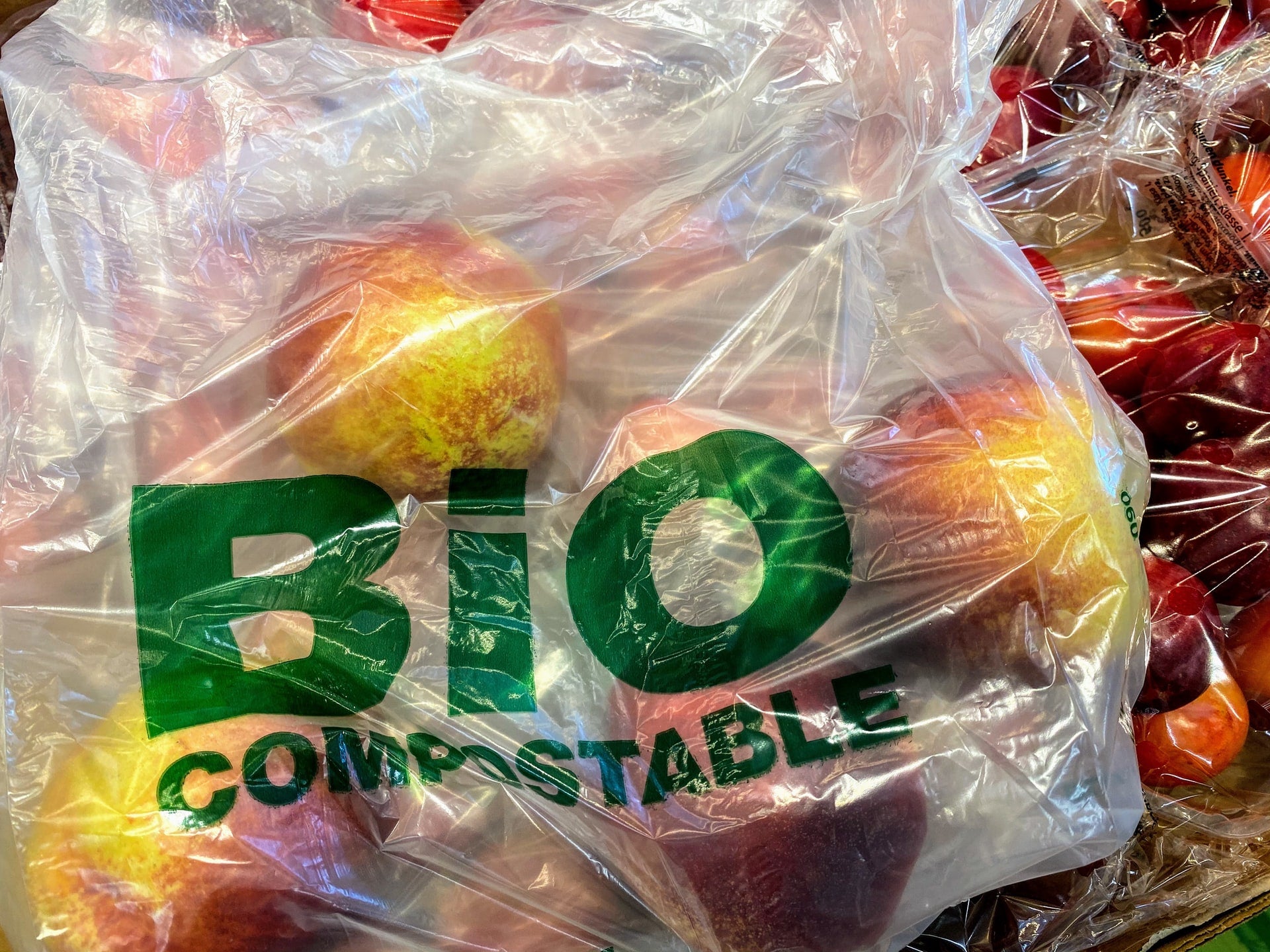
More than 40 businesses and organisations including Tesco, Waitrose, the National Farmers’ Union and A Plastic Planet, have called for degradable plastics to be banned in the UK.
They wrote an open letter demanding that the UK Government follow the EU in banning degradable plastics to help the environment. The EU will ban oxo-degradable plastics from next year.

Discover B2B Marketing That Performs
Combine business intelligence and editorial excellence to reach engaged professionals across 36 leading media platforms.
This comes after the British Standards Institution (BSI) enacted specification PAS9017 earlier this month which, the letter claims, “supports the sale of degradable plastics.”
In the letter, signatories claim that degradable materials do not solve the problem of plastic pollution, as they encourage littering under the misconception that the material will biodegrade.
The letter also states that microplastics enter the food chain through animals, fruit and vegetable, and impact human health, soil health, and biodiversity. It claims that degradable plastic is disruptive to recycling facilities, as they are unable to differentiate between conventional plastics and alternative plastic products.
The letter says: “These materials contain additives that accelerate the conversion of macroplastics into microplastics after months or years of laying in the open.

US Tariffs are shifting - will you react or anticipate?
Don’t let policy changes catch you off guard. Stay proactive with real-time data and expert analysis.
By GlobalData“The UK voted for the EU ban when it was proposed in 2019. Failing to act now could turn Britain from a leader into a laggard in fighting the plastic crisis.
“For these reasons, we call on the government to protect our environment, protect our food production, and protect British business by banning these materials immediately.”
What is PAS9017 and what does it mean for the packaging industry?
PAS9017 is a standard intended to provide clarity over which materials are biodegradable and which are not by measuring the biodegradability of polyolefins, the most littered form of plastic packaging.
As part of PAS017, plastic material must meet a biodegradable standard for sale. However, signatories of the letter have responded negatively to this, claiming that this still allows for the sale of degradable plastics.
UK-based food retailer Co-op environment manager Iain Ferguson said in response to PAS9017: “It is beyond concerning that the new specifications have been published despite repeated warnings of health and environmental impacts which appear to have been ignored or, not fully understood.
The UK voted for the EU ban of oxo-degradable plastics when it was proposed in 2019, and we believe enabling very similar materials to enter the UK market is a dangerous development which could not only cause environmental damage but would also undermine recycling at a critical time when the world is experiencing an environmental crisis and we all need to work together to avoid it.”
As well as signatories of the letter, members in the packaging industry have reacted negatively to the new standard as it means that UK-based companies using degradable materials may be unable to export products to the EU once the EU bans degradable plastics in 2021.
OPA rebuffs claims
The Oxo-biodegradable Plastics Association (OPA) chairman Michael Stephen responded to the open letter stating that the “decision-making process” which allows bans on oxo-biodegradable plastics is being “distorted to the commercial advantage of the lobbyists”.
Stephen told Packaging Gateway: “It must be obvious that advancing one bad point after another against the oxo industry, and deliberately ignoring the distinction between oxo-degradable and oxo-biodegradable plastic, is bringing the BBIA and their clients in the “bio-based” plastic industry into disrepute.”
Stephen quoted the open letter, which states that there is increasing evidence showing that microplastics are entering our food chain and that the full health implications of this are yet unknown. He said: “[This is] true, but they know perfectly well that these microplastics are coming from ordinary plastics and from their own bio-based plastics, and that the European Chemicals Agency said that they are not convinced that microplastics are formed by oxo-biodegradable plastic.
“Governments and consumers are waking up to the fact that the decision-making process is being distorted to the commercial advantage of the lobbyists and their clients, and to the disadvantage of the population and the environment. If they are allowed to succeed they will have deprived policymakers of the only way of dealing with plastic waste which has escaped into the environment and cannot be collected for recycling or anything else. The burden of plastic will keep mounting up until there is more plastic in the sea than fish.”





